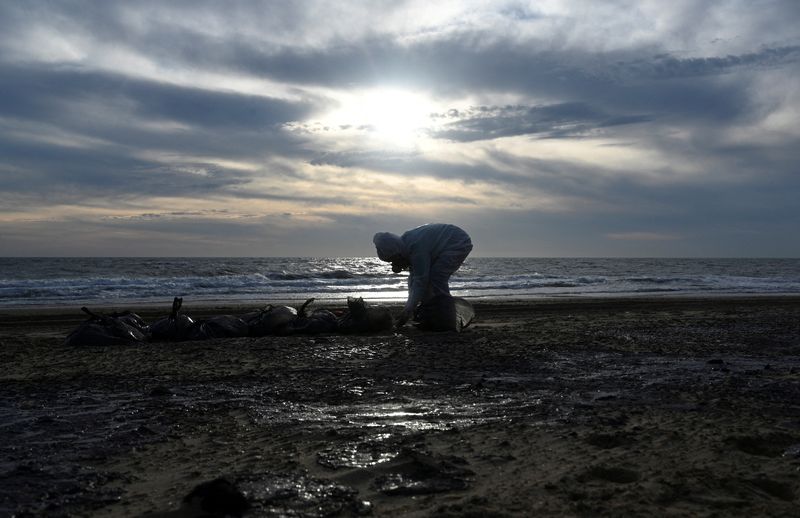MOSCOW (Reuters) – Authorities in Russia's southern Krasnodar region declared a region-wide state of emergency on Wednesday, saying oil was still washing up on the coast, 10 days after two aging tankers ran into trouble.
The oil comes from the tankers that were hit by a storm on December 15. One of the ships split in two, while the other ran aground.
The pollution, which has blanketed the sandy beaches of and around Anapa, a popular summer resort, has caused serious problems for seabirds and everything from dolphins to porpoises. More than 10,000 people have tried to clean up the pollution.
Trusted news and daily treats, straight to your inbox
See for yourself: The Yodel is the source for daily news, entertainment and feel-good stories.
Veniamin Kondratiev, governor of the Krasnodar region, said in a statement that he had decided to declare a state of emergency for the entire region because oil continued to pollute the coastline in Anapa and Temryuk districts.
He had previously declared a less serious emergency at the municipal level.
“According to the calculations of scientists and specialists, the largest amount of fuel oil should have initially remained at the bottom of the Black Sea, which would have allowed it to be collected in the water,” Kondratiev wrote on the messaging app Telegram.
“But the weather dictates its own conditions, the air warms and oil products rise to the top. As a result, they are transported to our beaches.”
Separately, a crisis center focused on the cleanup said the bow of one of the tankers – the Volgoneft-239 – had been discovered underwater and that divers would check for oil products leaking from it as soon as weather conditions allowed. allowed.
A total of more than 256 square kilometers of the coastal area was surveyed and 25 tons of oily-water sludge were collected, the same center said.
(Reporting by Reuters; Editing by Andrew Osborn)

